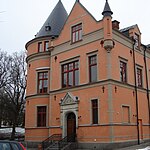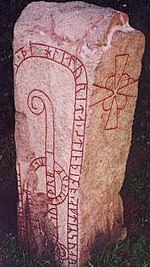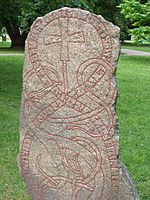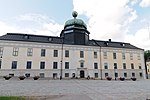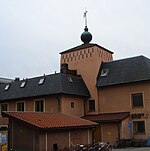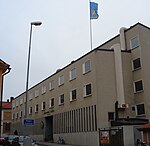University Park, Uppsala

University Park (Swedish: Universitetsparken), is a public park in central Uppsala in Sweden, situated in the historical Fjärdingen district close to Uppsala Cathedral. The park was created in its present form following the completion of the centrally situated University Main Building on the site during the 1880s, and retains much of its original character today. Many historical sights surround the park, including the 19th century University building, Södermanlands-Nerikes nation, Gustavianum, Ekerman House and the 18th-century Archbishop's Residence. Also situated next to the park is the modern Church of Sweden main administrative office building and the Fyrisbiografen cinema. Before the University Main Building stands the monument to Erik Gustaf Geijer (1783–1847), poet and historian, which was sculpted by John Börjesson and erected in 1888. The six runestones displayed in the park were originally found in the city and its surrounding countryside.
Excerpt from the Wikipedia article University Park, Uppsala (License: CC BY-SA 3.0, Authors, Images).University Park, Uppsala
Biskopsgatan, Uppsala Fjärdingen
Geographical coordinates (GPS) Address Nearby Places Show on map
Geographical coordinates (GPS)
| Latitude | Longitude |
|---|---|
| N 59.858055555556 ° | E 17.630555555556 ° |
Address
Geijerstatyn
Biskopsgatan
753 10 Uppsala, Fjärdingen
Sweden
Open on Google Maps
